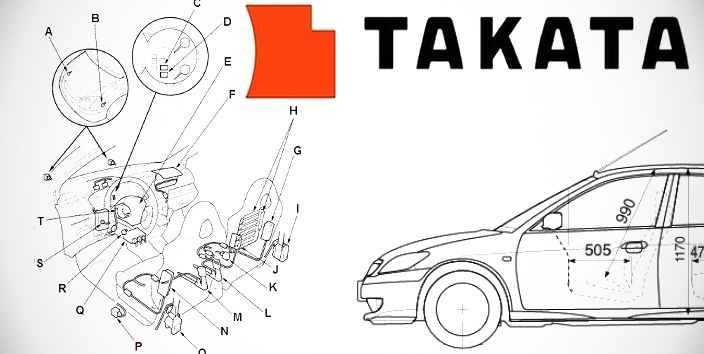
Honda has reached a settlement with 46 U.S. states as part of an investigation into its use of Takata-made airbag inflators, which had been linked to hundreds of injuries and over 20 deaths during a period spanning nearly a decade. The automaker, one of 19 that had used defective inflators produced by supplier Takata in their airbags, has agreed to pay $85 million as a part of an agreement after a massive recall campaign targeting approximately 100 million vehicles from multiple automakers worldwide, 40 million of which were sold in the U.S.
“As a part of the settlement Honda will also be required to adopt new product safety protocols involving suppliers, including demanding test records for airbag propellants,” the consent order states in part. “Honda shall implement internal complaint and reporting procedures, including, but not limited to, processes and procedures to enable Honda employees, including engineers or other personnel, to report confidentially and anonymously any concerns with product safety or testing data to an independent third party, and to prohibit retaliation in any form against any employee who makes or is suspected of making such a complaint.”
As a part of the agreement the automaker will also continue the recall campaign and will publicize the recall process for affected vehicles, and will also adopt a variety of testing protocols for airbag design and inflator safety. Honda will also be required to design and implement risk management processes, including high impact safety issues and instances of possible supplier fraud.
“Honda shall continue to publicize on its United States-facing website, in at least English and Spanish, the following information regarding the current status of its efforts to replace Takata Airbags under recall in the United States: (a) the models and model years in which Takata Airbags are subject to recall, (b) the total number of airbags recalled and (c) the total number of airbags replaced. Such information shall be updated at least monthly,” the consent order states in part.
The safety issue involving Takata-made inflators was first noted in the first half of the decade, but it was not immediately clear what the root cause was. Over a period of years, a number of agencies studied hundreds of instances of airbag deployments that resulted in injuries or deaths, finally discovering that the propellant tablets produced by the Japanese supplier Takata could degrade over time as well as due to environmental factors, and could produce a much more forceful airbag deployment when triggered in a crash. The propellant tablets in airbag modules were discovered to degrade over time and were especially susceptible to chemical changes in geographic areas with high humidity.
In numerous instances drivers and passengers suffered head and neck injuries when airbag deployments sent metal and plastic debris into the front of the cabin in crashes that were, at times, relatively minor. In instances of deaths caused by such deployments, victims often suffered blood loss as a result of neck punctures caused by various small impactors.
The recall process that began several years ago grew in size from a relatively small population of vehicles to tens of millions worldwide, spanning many different cars made over the past 30 years. Even as the recall process continued, new deaths and injuries occurred, at times in relatively minor crashes that drivers could have walked away from.
One of the most recent documented deaths in the U.S. linked to a Takata airbag took place in June of 2018, when Armando V. Ortega died in the hospital following a crash in Phoenix in his 2002 Honda Civic, as a result of injuries sustained during an airbag deployment.
Source: Read Full Article



